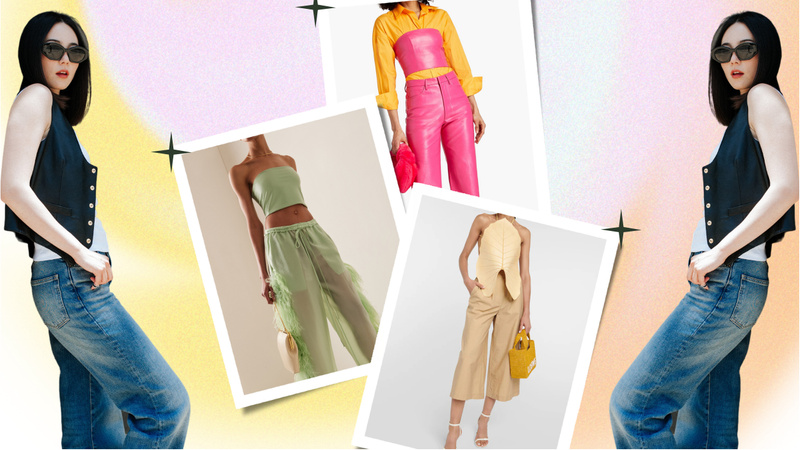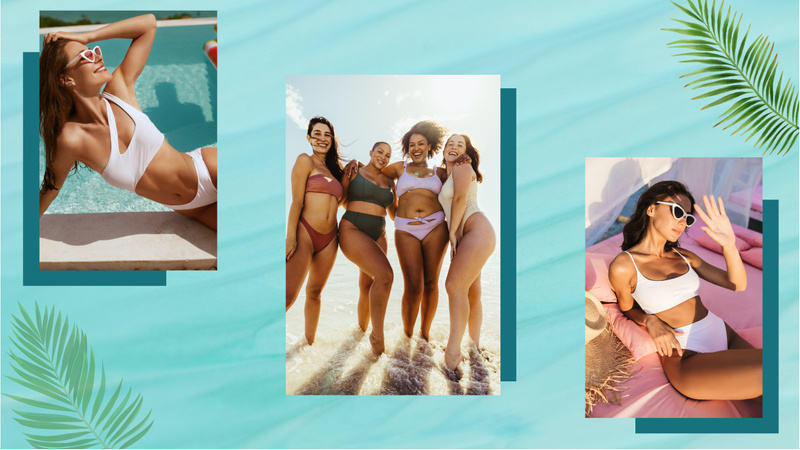Eco-Friendly Fashion Brands to Support this Summer
Planet Earth was again reminded of the harsh reality of climate change just as summer arrived. In early July, the planet experienced four consecutive days of global record-breaking heat, exemplifying the grim realities of human-induced global warming. The fashion industry, unfortunately, has been in the crossfire as a leading culprit to global waste.
The Global Economic Forum cited the fashion industry as responsible for 10% of global carbon emissions, citing tens of millions of tonnes worth of textile waste, pollutants in our waterways, toxic dyes, and the exploitation of underpaid workers.
These grim realities, however, have been viewed as an opportunity to do better, challenging the status quo in the luxury fashion ecosystem. New technological advancements in the textile industry are giving rise to innovation. Over the past half-decade, we’ve seen brands like Desserto and Bolt Threads create cactus and mushroom leather respectively, utilizing naturally occurring phenomena to harness the power of Mother Nature. These advancements are also changing the perception of alternative fabrics, as technology has proven that plant-based fabrics can hold their own over long periods.
On the other hand, luxury brands have embraced buy-back and upcycling programs to help curb waste, while others are curating older fabrics to create something new with the old.
While the challenges plaguing the fashion industry are plentiful there are glimmers of hope. Many brands have begun approaching sustainability as a necessity, not a trend.
This summer, consider supporting the luxury brands that are driving the sustainability conversation through beautiful, eco-friendly garments. In no particular order, here are some notable names in a growing list of eco-conscious brands you can support now, available on ModeSens.
Stella McCartney
Arguably the most established figure in the sustainable fashion space is Stella McCartney—a visionary who was decades ahead of the conversation related to waste in the industry. In 2001, McCartney launched her label under the Gucci Group umbrella. Today, the brand is under the LVMH umbrella, where McCartney also sits as a special adviser to LVMH Chairman Bernard Arnault leading discussions on sustainability and waste reduction.
The brand built a reputation for designing stunning garments without fur and leather and is arguably one of the first prominent luxury houses to succeed with this business model. Over the past two decades, the brand has released stunning silhouettes with cruelty-free, vegan materials.
Today, her activism reaches beyond the brand, and Stella McCartney is a vocal proponent of stricter regulation across the industry while bringing attention to workers' rights and the concerns around “modern slavery.”
Bode
There is no better example of modern upcycled luxury than Bode, a brand that experienced exponential growth at the turn of the new decade. Since 2016, Bode has produced unique garments cut from antique fabrics, quilts, grain sacks, and bed linens. According to the brand’s website, it reimagines workwear silhouettes through women-centric traditions of quilting and mending.
The brand is a prime example of how utilizing recycled fabrics can breathe new life into our wardrobes. Founder Emily Adams Bode Aujla was the first woman designer to show at NYFW: Men’s, and has been recognized for numerous prestigious awards over the past few years.
Bode’s audience is growing but committed. The brand’s menswear has amassed an almost cult-like following, adding a feminine touch to the historically rigid lines and barriers in men's fashion. Self-expression, storytelling, and sustainability are at the forefront of Bode’s ethos, and the brand continues to release upcycled garments in limited quantities, even as it grows.
Reformation
Creating timeless pieces for any wardrobe, regardless of trend cycles, is a business model employed by a growing number of fashion brands across the world. Marry this idea with sustainability and you have Reformation, one of the biggest eco-friendly brands on the market.
Reformation actively promotes a circular economy by encouraging customers to return their unwanted garments through its RefRecycling program, where materials are repurposed or recycled into new fabrics. By extending the lifespan of its products, Reformation is reducing textile waste and creating an environment where recycling and upcycling are the norm, not the exception.
The brand is transparent and vocal. It releases a highly-detailed annual sustainability report outlining supply chain details which are shared with its audience. Like Stella McCartney, Reformation has led the way to a more sustainable industry but at a more accessible price point, and looks set to be a leader in the space for years to come.
Eileen Fisher
Eileen Fisher founded her namesake brand in 1984 with the aim of creating timeless, comfortable clothing for women. Despite humble beginnings, Eileen Fisher has grown into a prominent player in the fashion industry, known for its commitment to sustainability.
The brand is known for using organic fibers such as organic cotton and linen, which reduce the use of pesticides and chemicals in the production process.
In 2009, Eileen Fisher launched its Vision2020 initiative, a comprehensive plan set on achieving 100% sustainability by the year 2020. The initiative focused on areas such as supply chain transparency, reducing water consumption, supporting fair wages and safe working conditions, and implementing recycling programs. This commitment to sustainability was not just a marketing strategy but an integral part of the brand's mission and values. After achieving many milestones in the report, Eileen Fisher is now focused on new goals outlined in her Horizon 2030 manifesto. Vogue states those goals include regenerative farming and reducing waste/production.
Eileen Fisher's history is intricately connected to its impact on sustainable fashion. Since its beginnings, the brand has championed ethical practices and a commitment to the environment. Through initiatives like Vision2020, collaborations with industry organizations, and circular economy programs, Eileen Fisher has continuously pushed the boundaries of sustainability in the fashion industry. Its dedication to responsible sourcing, transparency, and innovation sets an example for other brands, inspiring them to adopt more sustainable practices and work towards a more ethical and environmentally conscious future.
Gabriela Hearst
Renowned fashion designer Gabriela Hearst has built a reputation on her exceptional commitment to sustainability. The brand emphasizes craftsmanship and quality, employing skilled artisans to produce timeless garments in small-scale production facilities.
In 2020, Hearst became the first luxury fashion designer to fully offset her brand’s carbon emissions, investing in renewable energy initiatives while supporting reforestation efforts to mitigate climate change and human-induced environmental impacts.
Like other designers on this list, Hearst has embraced the circular economic system; she upcycles deadstock vintage fabrics, and repurposes older fabrics into new designs. In March of 2023, Hearst famously told The Guardian that she “never thinks about trends.” Rather, the brand is committed to creating clothing that will last a lifetime. Timeless quality is the hard-won result of Gabriela Hearst’s dedication to sustainability and transparency. Two guiding tenants more luxury brands would do well to follow.
 The Best Vegan Outfits To Shop This Wildlife Month July is officially Wildlife Month, and as the effects of climate change become increasingly alarming and the need for wildlife preservation becomes ever more necessary, we've compiled an edit of vegan leather pieces with all the luxurious appeal of their genuine leather counterparts, but none of the cruelty.
The Best Vegan Outfits To Shop This Wildlife Month July is officially Wildlife Month, and as the effects of climate change become increasingly alarming and the need for wildlife preservation becomes ever more necessary, we've compiled an edit of vegan leather pieces with all the luxurious appeal of their genuine leather counterparts, but none of the cruelty. 

